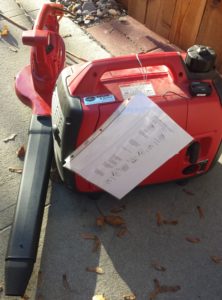Funny..it seems like it was just two or three weeks ago my focus was rather intense about getting topped off on various foodstuffs and other items. And now…the sense of urgency seems…diminished…I suppose. That is, of course, the classic survivalist trap – you get fired up over something and pursue it with great intensity and then that intensity wanes. And then, something big happens, and you’re caught flat-footed.
Solution? Well, for me, it’s reminding myself that we aren’t out of the woods by a long shot. Oh sure, virus-wise its a maybe-maybe-not thing, but my concern is more economic. The repercussions aren’t going away anytime soon and I need to be in a position to not only survive it but be able to take advantage of the situation as the less-foresighted suddenly have to choose between their pre-ban Bennelli M3 Super 90 or making the mortgage that month.
Did you know that, as a group, the Mormons came out of the Great Depression better than when they went in? Because of their conservative nature and dogma they weren’t as impacted as most other groups. As a result, they were in a position to take advantage of opportunities that arose.
From an economic standpoint, the impact the virus (and it’s ‘control measures’) inflict on the economy are pretty big. I don’t see a lot of new hirings for the rest of the year, I can see a lot of places shuttering up from not being able to withstand the revenue loss of a couple months, surviving businesses might have to cut back hours/employees, and the smarter folks will cut discretionary spending to the bone to make sure hey have enough cash ‘just in case’. In short, the worst person to be right now is a Starbucks barista with $50k in student loans, a car loan, credit card debt, and a month-to-month lease with roommates. (Actually, thats a pretty crappy position to being pretty much anytime.)
Other things I find interesting are how the media beatas a slightly different drum every few days. Drug shortages one day, restricted airline travel the next, and the current crsis du jour is….meat shortage. Here’s how strong an influence that media can be – I saw no less than three articles on various news wires predicting a beef shortage. My natural inclination was to think “Ok, time to head up to CostCo and buy a case of beef” and then I realized, waitasec, I don’t really eat beef. (True fact: other than cheeseburgers, I don’t eat very much beef. Rarely do I eat a steak. My go-to animal protein is chicken and Italian sausage.) But the media hype had gotten to me to the point that I was almost ready to go stock up on something I don’t even really eat. Insidious the way these media panic stories mess with your head.
On the other hand, as I said, there’s also the problem of them not messing with your head and you becoming complacent or losing your momentum/initiative. Thats what I have to be on guard against right now. The ship is sinking, and it’s a slow leak, but the fact it is happening slowly does not change the fact that it is happening.The Current Situation seems to move slowly and invisibly but it is moving….and not for the better (economically). So, stay focused, keep your eye on the big picture, and stick to the plan.



